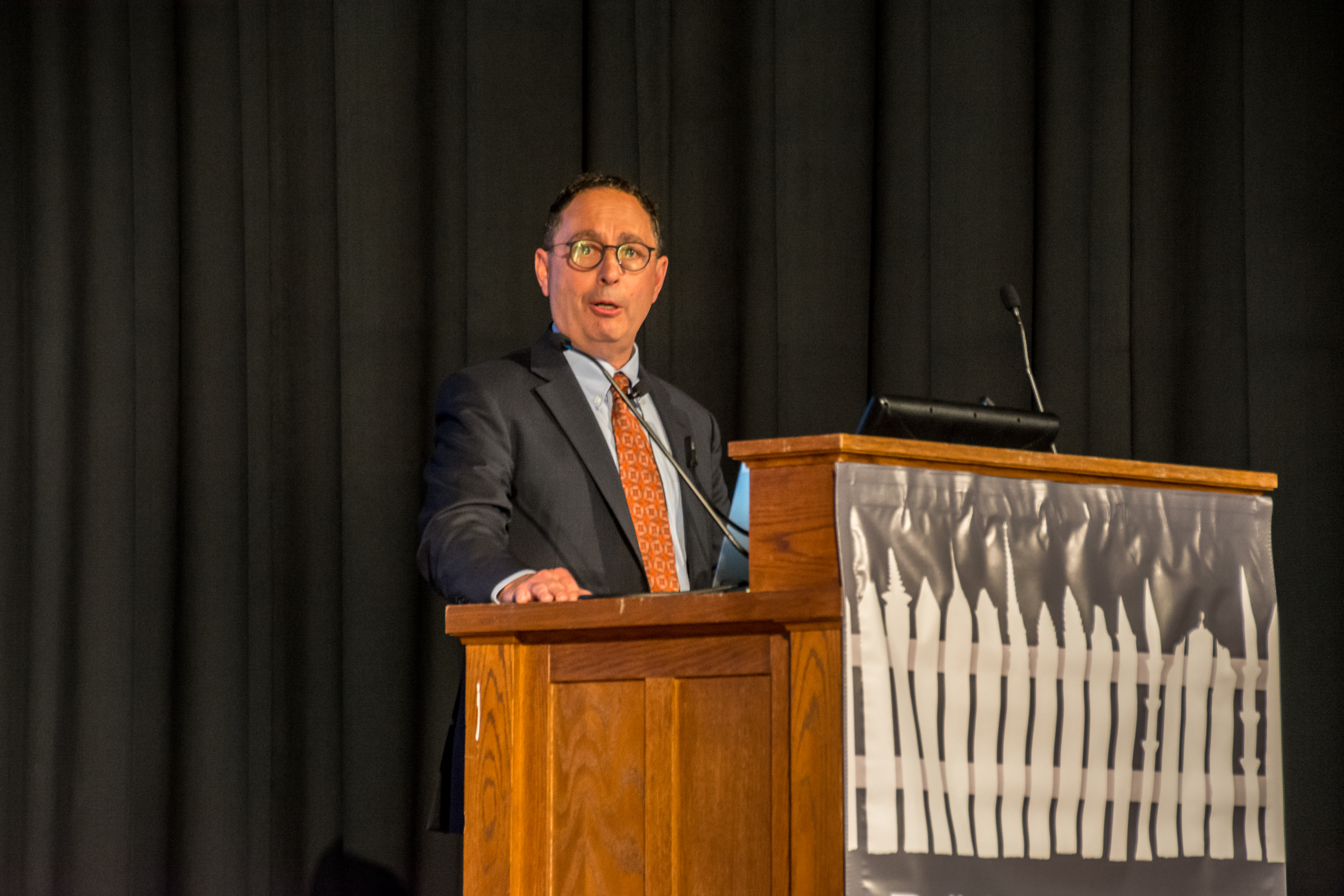Professor of medicine Dr. Jeremy Sugarman discussed the interplay of secular bioethics and religion. Photo by Autumn Walter.
The seventh speaker of this year’s Honor Colloquium delivered a speech titled “Ethical Controversies in Medicine and Medical Research: The Interplay of Secular Bioethics and Religion” on Tuesday in the Edwards Auditorium.
The speaker, Dr. Jeremy Sugarman, is a professor of medicine and bioethics at Johns Hopkins University. Sugarman is a leader in the field of biomedical ethics, making major contributions in policy surrounding the ethics of informed consent, stem cell research and international HIV prevention research. Sugarman has written over 300 articles, reviews and book chapters in this field. He also speaks internationally about the issues of bioethics.
Sugarman’s presentation displayed the ethics of navigating the balance between religious and secular values in the world of medicine.
“It’s the stuff people like to talk about at their dinner table, and I get paid to talk about it,” Sugarman said.
Sugarman began the lecture by discussing the Hippocratic Oath, an oath that all physicians take that are meant to uphold a number of ethical standards, primarily “do no harm.”
With the vague nature of this statement, many ancient doctors would refuse to administer any treatment they deemed as harmful, including surgery. This would ultimately render many ancient medicinal practices as ineffective.
As research in the field of medicine progressed, so did the ethics surrounding it. Many doctors would conduct potentially harmful tests on themselves or their children in an attempt to not harm others, including some of the earliest tests in cardiac catheterization.
According to Sugarman, the complicated relationship between medicine and ethics would continue into the 20th century, as Nazis would conduct brutal experiments on Jewish prisoners during the Holocaust.
Most prominently, Nazis would conduct hypothermia experiments to see how long people could survive in cold water. With the research from these experiments still being used today despite its questionable ethics, the question of whether or not it is okay to use data that was achieved through unjust methods arose.
“All of them were doctors before the war,” said Sugarman. “They’ve all taken the Hippocratic Oath. They have all lived in a society that had the most elaborate research ethics regulations in the world. How did they do it? Why did they do it? What did they do? They were doctors.”
Sugarman said that these flagrant violations of medical ethics lead to the creation of the Nuremberg Code of 1947, which emphasized the need for voluntary consent before any research is conducted on a patient.
Sugarman emphasized the need for autonomy for patients as well, especially those with religious objections to any treatment. He particularly focused on the story of a Jehovah’s Witness who died in his case after refusing a life-changing blood transfusion. Issues of autonomy, beneficence and justice, Sugarman claims, are the ethical principles in medicine that should always be taken into consideration.
Sugarman continued by discussing various events throughout American history that have come to define the ways we value ethics in research in medicine. These events include the Tuskegee Syphilis Study, the Willowbrook Hepatitis Study and the introduction of “test-tube babies.”
Abby Fenbert, a student in the Honors Colloquium class, thought Sugarman did a great job of bringing awareness to a topic that’s very often overlooked in the world of American religious discussion.
“I thought he was very informative on a very hot-button topic,” said Fenbert. “His use of stories really brought real-world examples in that made it hit closer to home.”

